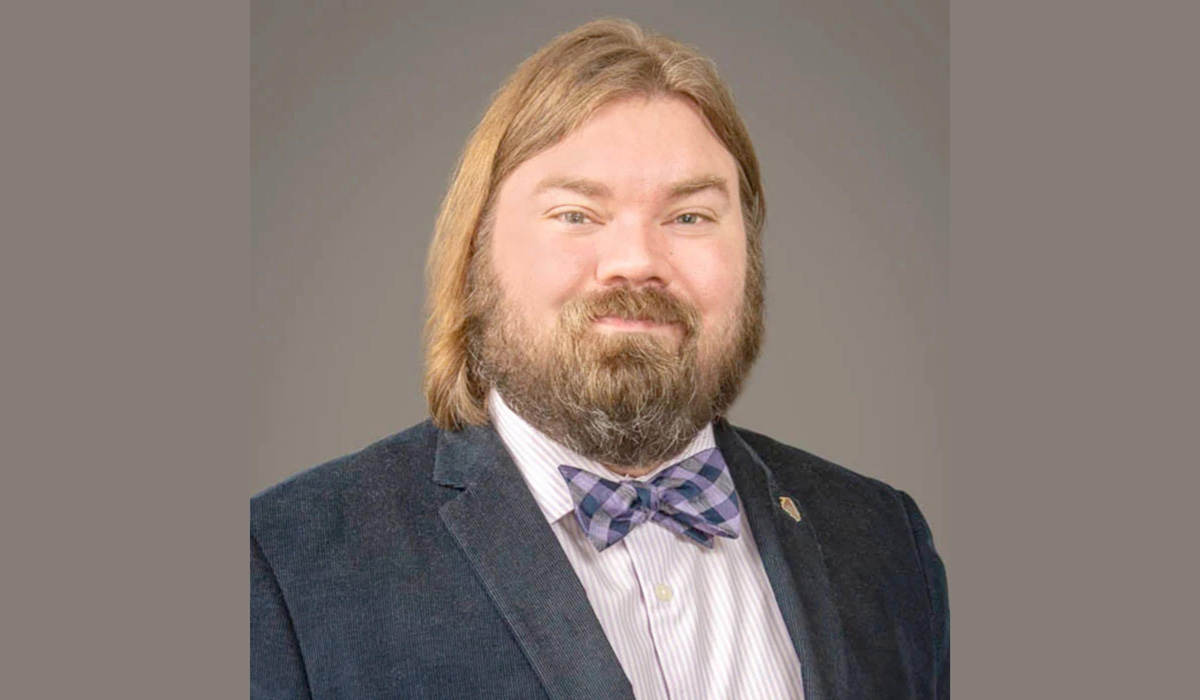

Chasse Rehwinkel ’09 has always been passionate about making change happen—being a voice and advocate for the underrepresented and overlooked.
Growing up in a strong and supportive family in Louisiana, Rehwinkel says he is incredibly grateful for the open doors he walked through and the family, friends, and colleagues who have uplifted him in pursuit of his passions. However, as a member of the LGBTQ community—a community that continues to fight for its rights—he is reminded every day in the news and in his personal life that not everyone has had access to those same opportunities he’s been fortunate enough to have. Not everyone has people advocating for them.
Today, in his current role as the director of banking for the state of Illinois, he hopes to give back to society and provide equal opportunities to individuals from all walks of life, whether it be ensuring that people with loans receive breaks when they need it, or that those struggling are receiving financial assistance.
In the work where he has a hand, he wants everyone to feel seen and heard.
“From my perspective, there’s something special about looking at a problem that’s impacting individuals and working on a solution,” said Rehwinkel. “It’s hard work, but if you put a lot of work into it, you can help a family or help a population.”
At Gettysburg College, Rehwinkel double-majored in history and political science and also wrote for the Gettysburgian. After he graduated, he had a one-year stint writing for ChicagoNow and the Windy City Times, the latter being an LGBT newspaper in Chicago, which ultimately led to a valuable connection and a new opportunity working on a local political campaign—and then another, and another.
“These opportunities got me thinking about what my next steps would be, because while I liked journalism, government work had always interested me, particularly the economic side of government,” Rehwinkel said.
He went on to earn his master’s in public policy at the University of Chicago in 2015, simultaneously building his portfolio in politics by working for an Illinois state representative and eventually serving as policy director for the state treasurer. In 2017, he served as the chief economist and director of bond division for the state comptroller, and when the new governor came on board in 2019, he was invited to join his cabinet, where he’s served for the last two years.
Here, Rehwinkel regulates state-chartered banks, non-bank mortgage lenders, student loan servicers, and pawnbrokers, in addition to implementing various financial policies. Amid the COVID-19 pandemic, Rehwinkel and his colleagues’ work shifted to focus on ensuring banks remained secure and wouldn’t falter and that individuals and local businesses facing strained financial situations received the support they needed.
“At the end of the day, the reason I’m in government is to help people, and when things fall apart in a crisis like COVID-19, it falls on the government to react quickly and help people,” he said. “It doesn't always happen, but that should always be our goal, to react as fast as we can to make sure people’s lives can be as normal as possible through an abnormal situation.”
Rehwinkel also noted that the COVID-19 pandemic has shined a harsh light on a lot of systematic problems that exist within his realm of work. For example, there were a lot of businesses and individuals who do not use banking services—a population composed mainly of people of color or those with low-to-moderate income levels—and these groups of people were excluded from COVID-19 resources that were distributed through banks.
“A friend of mine used to say, ‘Falling waters reveal rotten roots,’” Rehwinkel said. “In this instance, when you have a situation where there’s an underlying inequity, it gets emphasized more in a crisis. Moving forward, we’re going to look more closely at equity and make sure that our system is set up in a way that helps everyone. … Increasing diversity in the industry is an important step. If you don’t have diversity of thought or background, it’s going to limit the options for you to create and really see the solutions to these problems.”
While Rehwinkel’s passion for change comes naturally, his well-rounded liberal arts education at Gettysburg prepared him to be the leader he is today.
“At Gettysburg, I met a lot of different people from a lot of different places, and I studied a lot of different subjects and a lot of different things—some of which I don’t use anymore. But, that’s OK,” Rehwinkel said. “Gettysburg is really great at giving you diversity in thought, which is important later, not because you want to know everything—you’re never going to—but because it helps you problem solve. It teaches you to recognize when you know something, when you don’t, and whom to talk to in order to find the answer.”
Beyond banking institutions, these systematic problems can be seen deeply embedded in much of our society—some people have access to more opportunities than others, says Rehwinkel. He believes that both the cause and the cure to these problems are the same: humans.
“Most of the major issues that we face are human-created, so they have to have human solutions,” Rehwinkel said. “It’s not like an asteroid hit the earth. That’s unlucky and may not have a solution. But, there are a lot of issues of poverty and equality that were created because humans set those roles, and it’s incumbent on us to make sure we adjust those roles to make sure everybody’s included.”
By Molly Foster
Photos courtesy of Chasse Rehwinkel ’09
Posted: 06/28/21


